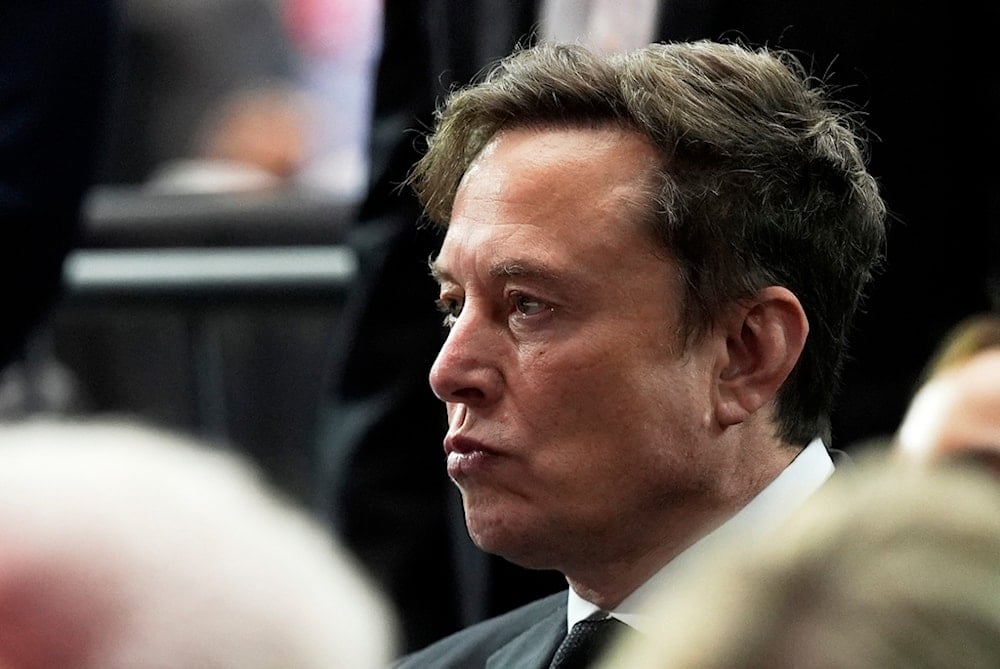Trump’s DOGE disbands early despite 2026 mandate
The Trump administration has quietly dissolved DOGE, its Department of Government Efficiency, eight months before its mandate ended, despite initial promises to reduce government spending and federal workforce size.
-

Trump’s DOGE Disbands Early Despite 2026 Mandate, Elon Musk attends a memorial for conservative activist Charlie Kirk, Sunday, September 21, 2025, at State Farm Stadium in Glendale, Ariz. (AP Photo/Julia Demaree Nikhinson)
The Department of Government Efficiency (DOGE), once a centerpiece of US President Donald Trump’s promise to downsize federal bureaucracy, has been quietly disbanded, eight months ahead of schedule.
“That doesn't exist,” Office of Personnel Management (OPM) Director Scott Kupor told Reuters earlier this month when asked about DOGE’s status. He added that the department is no longer a “centralized entity,” marking the first public acknowledgment of DOGE’s dissolution.
Initially launched in January during Trump’s second term, DOGE quickly moved to reduce agency budgets, cut jobs, and realign federal programs with presidential priorities. According to Kupor and documents reviewed by Reuters, OPM has since absorbed many of DOGE’s functions.
Read more: Musk, DOGE exposed for exaggerating $55bln. cuts: WashPo
DOGE winds down before its mandate ends
Trump’s executive order had established DOGE’s charter through July 2026. However, by mid-2025, the once high-profile office had effectively vanished from the federal landscape.
Though officials stopped short of announcing DOGE’s zsformal closure, signs of its winding down have been apparent for months. Trump himself often referred to DOGE in the past tense, while key personnel quietly transitioned to new roles.
DOGE debuted with significant media fanfare. Billionaire Elon Musk, its initial figurehead, promoted the agency’s mission to slash regulations and government spending. At the Conservative Political Action Conference in February, Musk wielded a chainsaw above his head, declaring, "This is the chainsaw for bureaucracy."
Despite claims of saving tens of billions of dollars, DOGE did not release detailed public accounting, making independent verification impossible. Critics argue that while it promised federal workforce cuts and streamlined services, measurable outcomes were limited.
Read more: US judge blocks Musk's cost-cutting team from Treasury data
Trump officials and the quiet phase-out
Though the Trump administration did not confirm DOGE’s end, internal shifts pointed to its dismantling. Acting DOGE Administrator Amy Gleason officially became an adviser to Health and Human Services Secretary Robert Kennedy in March, with public comments focused solely on her new role.
Kupor confirmed that DOGE’s hallmark hiring freeze had ended. “There is no target around reductions anymore,” he said. The freeze had originally required DOGE’s approval for exceptions, enforcing a “one-in, four-out” policy on federal hiring.
Former DOGE leaders take on new government roles
Many former DOGE staff members have assumed roles elsewhere in the Trump administration. Joe Gebbia, co-founder of Airbnb and now head of the National Design Studio, was appointed to improve the “visual presentation” of government websites. The studio has since launched platforms to recruit law enforcement in Washington, D.C., and promote Trump’s drug pricing policy.
Zachary Terrell, previously granted access to government health systems, is now Chief Technology Officer at the US Department of Health and Human Services. Rachel Riley has taken up the role of Chief at the Office of Naval Research.
Jeremy Lewin, who helped dismantle the US Agency for International Development, now oversees foreign assistance at the State Department. Meanwhile, Scott Langmack has been tasked with developing AI tools to review US regulations and identify which to eliminate, continuing DOGE’s push for regulatory reform initiatives.
DOGE’s legacy and state-level models
Despite its quiet exit, DOGE’s influence continues. Republican-led states like Idaho and Florida have established local offices modeled after the federal initiative.
While Musk’s role in DOGE has ended and he has departed Washington, he recently reappeared at a White House dinner attended by Saudi Crown Prince Mohammed bin Salman, signaling ongoing connections to Trump-era policy circles.

 4 Min Read
4 Min Read








